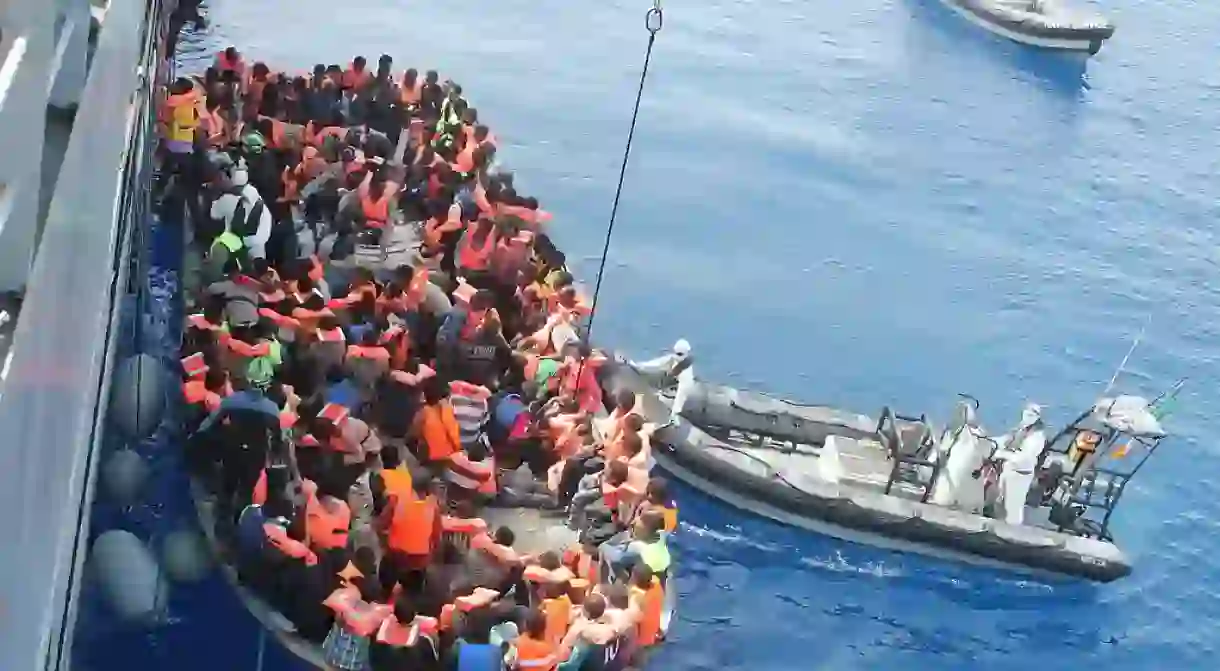Filmmaker Talks About His New Documentary On Aiding Refugees At Sea

Few of us are strangers to the grim images of refugees crossing the Mediterranean in overcrowded rafts that appear in newspapers and on media outlets. Nor are we unfamiliar with the headlines announcing that hundreds were killed in attempts to make this perilous journey. Yet, few first-hand accounts of these harrowing voyages are released into the informational sphere nor do we hear much about the individuals and organizations fighting to aid them.
In director Skye Fitzgerald’s latest documentary, he seeks to unveil alternative narratives surrounding the crossing of the Mediterranean and Aegean Seas by refugees from the perspectives of those who are directly involved in helping them to do so. The idea for the film, POC (Persons of Concern), came as a follow up to his last, 50 Feet From Syria, which follows a Syrian-American surgeon’s days at a Turkish hospital at the Syrian border, attending patients whose bodies had been ravaged by the atrocities of this war.

The magnitude of people desperate to flee from the war-torn, terrorized nation and the individuals who sacrifice to help them cross borders to safety was enough to cause Fitzgerald to take his documentary coverage further. In doing so he continues the work of communicating ‘… the human cost of one of the most brutal, dehumanizing conflicts in modern history that continue to destroy and displace millions of lives’ that he began with 50 Feet From Syria.

Like his other documentaries, Fitzgerald also aims to capture the resilience of humanity in the determined acts of goodwill that spring up in response to war’s grim consequences. In order to do this in his latest picture, he will be documenting a mission by Sea Watch, a Berlin-based organization that works to fill the humanitarian gap left by governments and civic society in aiding the refugees. A private organization founded by citizens in 2014, Sea Watch has already rescued over 5,000 people. A two-person film crew will accompany Sea Watch aboard a Search and Rescue boat to document their efforts as they race to save refugees from sinking rafts in the Mediterranean.

The second narrative will illustrate the story of those refugees who were not fortunate enough to make it to shore because their rafts sank at sea and no one came to their rescue. Fitzgerald will document this portion of the film on the shores of Zarzis in Tunisia. He and his team will film what happens to the corpses after they wash up on beaches where volunteers collect the bodies and bring them to a morgue where they are subsequently ‘bulldozed unceremoniously into a mass, unmarked grave.’ Fitzgerald goes on to explain that ‘this darker narrative will serve as a stark and visceral reminder of the great need for a humanitarian response that meets the current scale of the crisis.’
Fitzgerald will be filming the piece during the month of September. To find out what you can do to help, check out the Sea Watch website.













